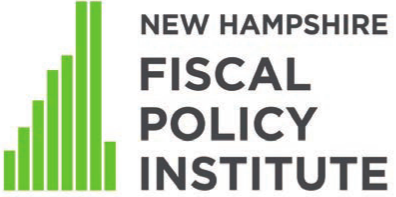 New Hampshire state revenues have been limited by lower business tax receipts and the repeal of the Interest and Dividends Tax. As New Hampshire policymakers work to finalize the next state budget, legislators have been looking for expenditures to eliminate and other revenues to boost in their efforts to balance the state’s spending plan.
New Hampshire state revenues have been limited by lower business tax receipts and the repeal of the Interest and Dividends Tax. As New Hampshire policymakers work to finalize the next state budget, legislators have been looking for expenditures to eliminate and other revenues to boost in their efforts to balance the state’s spending plan.
The governor and legislators have proposed expanded gambling, primarily through video lottery terminals, to bring in more state revenue. The governor’s initial video lottery terminal proposal was projected to have generated $127 million in state revenue during the next budget biennium, which is the equivalent of about $83 per resident in the second year of the budget alone.
The House’s budget proposed expanding gambling further, including adding higher-stakes gaming options and projecting revenue increases from changing maximum ticket prices from $30 to $50. In total, the House anticipated an increase of $199.1 million in state revenue.
Expansions of gambling in the next state budget would continue a longstanding trend of gaming expansions in New Hampshire. In State Fiscal Year (SFY) 2016, when racing and charitable gaming activities were incorporated into the State Lottery Commission’s purview, the Lottery Commission reported total sales and other revenue of $308.6 million. By SFY 2024, total revenue had increased by $326.2 million (105.7%) to $634.8 million.
During this period, the Lottery Commission’s profits were the fastest-growing major source of revenue to the state budget’s combined General and Education Trust Funds. That expansion was largely the result of state policy changes that expanded gambling opportunities.
Keno gaming was legalized in SFY 2018, and the internet-based iLottery was established in SFY 2019. Sports betting was newly legalized under the New Hampshire Lottery Commission in SFY 2020. However, revenues also grew during this period from pre-existing lottery games, including instant scratch games, Mega Millions and Powerball.
These gambling expansions have generated more money for local public education. The state constitution requires that state-run lottery revenue, after administrative costs, must be used for school districts in New Hampshire.
However, gambling addiction may generate costs to society. Some research suggests that the negative effects of gambling may fall disproportionately on people with lower incomes.
Recent expansions of legalized gaming in the state have generated needed cash for funding education and offset other expenses, but the future trajectories of these revenues, and their overall impacts, are still a gamble.
Phil Sletten is research director for the NH Fiscal Policy Institute. The NHFPI Policy Memo is a partnership of the NH Fiscal Policy Institute and NH Business Review.




